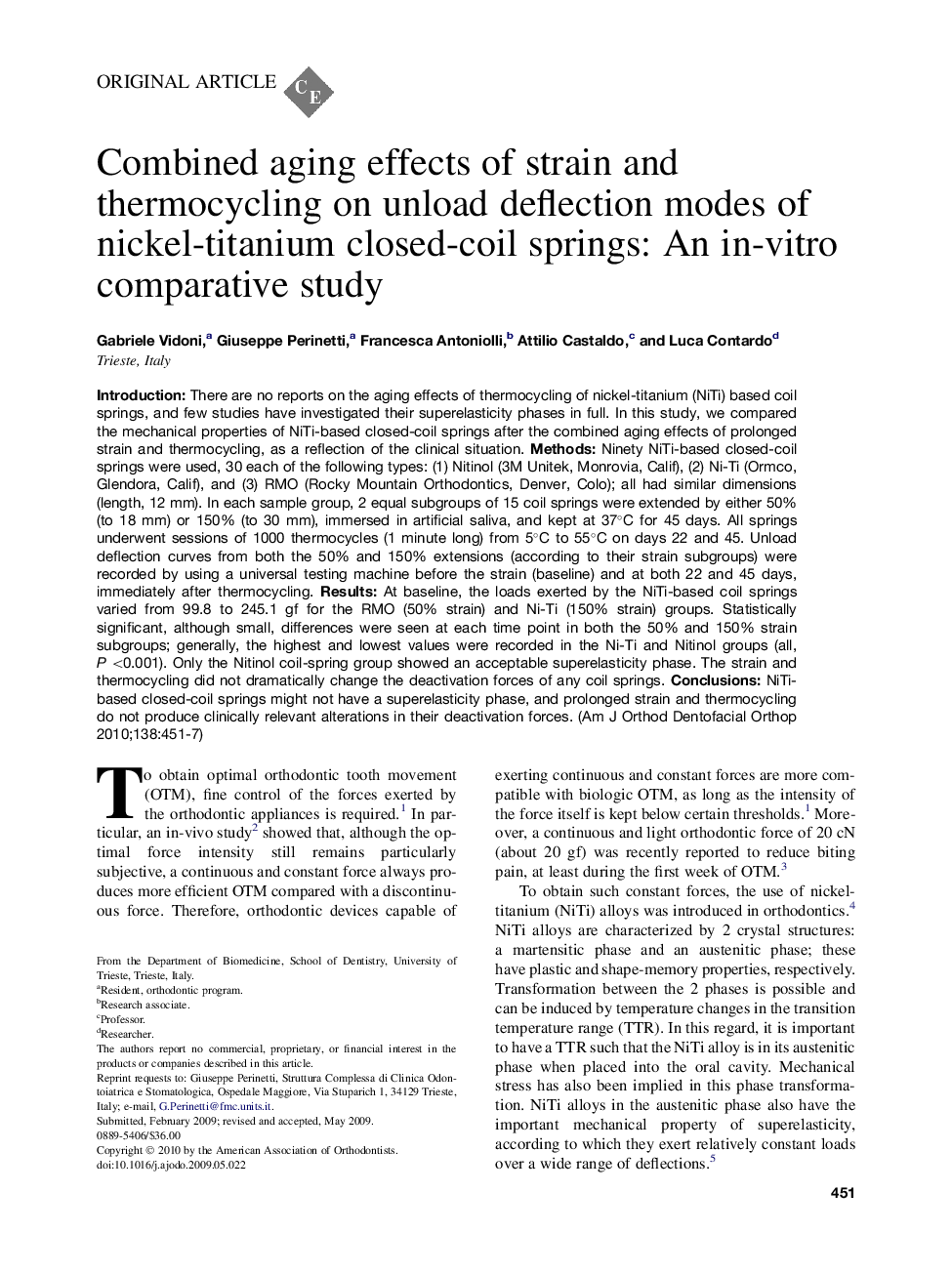| کد مقاله | کد نشریه | سال انتشار | مقاله انگلیسی | نسخه تمام متن |
|---|---|---|---|---|
| 3119436 | 1582749 | 2010 | 7 صفحه PDF | دانلود رایگان |

IntroductionThere are no reports on the aging effects of thermocycling of nickel-titanium (NiTi) based coil springs, and few studies have investigated their superelasticity phases in full. In this study, we compared the mechanical properties of NiTi-based closed-coil springs after the combined aging effects of prolonged strain and thermocycling, as a reflection of the clinical situation.MethodsNinety NiTi-based closed-coil springs were used, 30 each of the following types: (1) Nitinol (3M Unitek, Monrovia, Calif), (2) Ni-Ti (Ormco, Glendora, Calif), and (3) RMO (Rocky Mountain Orthodontics, Denver, Colo); all had similar dimensions (length, 12 mm). In each sample group, 2 equal subgroups of 15 coil springs were extended by either 50% (to 18 mm) or 150% (to 30 mm), immersed in artificial saliva, and kept at 37°C for 45 days. All springs underwent sessions of 1000 thermocycles (1 minute long) from 5°C to 55°C on days 22 and 45. Unload deflection curves from both the 50% and 150% extensions (according to their strain subgroups) were recorded by using a universal testing machine before the strain (baseline) and at both 22 and 45 days, immediately after thermocycling.ResultsAt baseline, the loads exerted by the NiTi-based coil springs varied from 99.8 to 245.1 gf for the RMO (50% strain) and Ni-Ti (150% strain) groups. Statistically significant, although small, differences were seen at each time point in both the 50% and 150% strain subgroups; generally, the highest and lowest values were recorded in the Ni-Ti and Nitinol groups (all, P <0.001). Only the Nitinol coil-spring group showed an acceptable superelasticity phase. The strain and thermocycling did not dramatically change the deactivation forces of any coil springs.ConclusionsNiTi-based closed-coil springs might not have a superelasticity phase, and prolonged strain and thermocycling do not produce clinically relevant alterations in their deactivation forces.
Journal: American Journal of Orthodontics and Dentofacial Orthopedics - Volume 138, Issue 4, October 2010, Pages 451–457